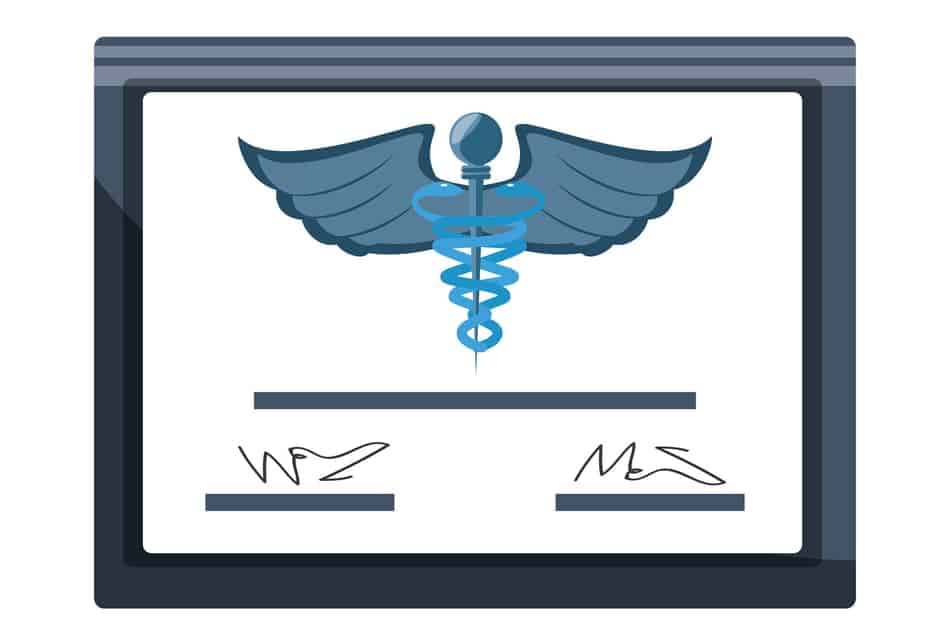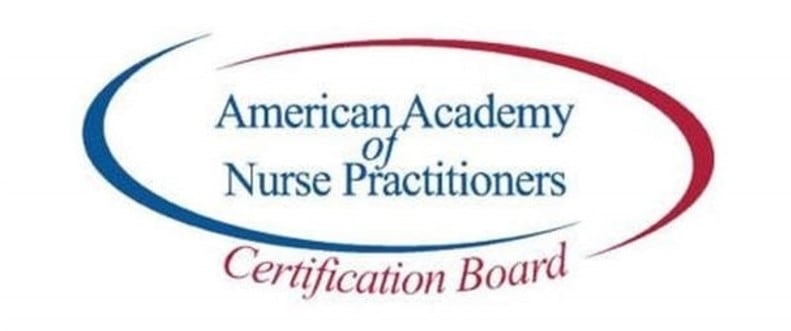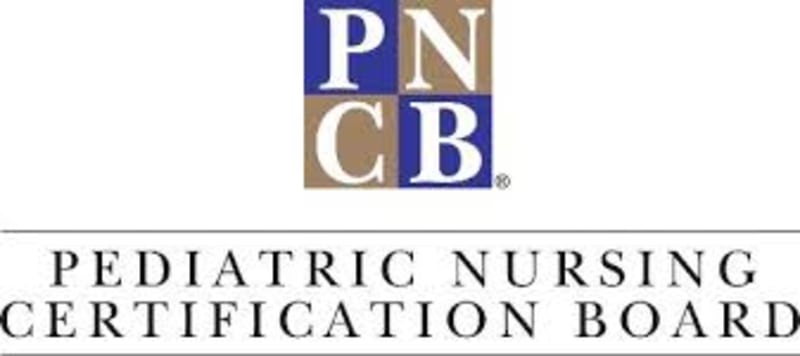
Understanding what board certification really means may come across as confusing for a future nurse practitioner. I know when I was getting close to graduation, I had many questions and concerns about this topic. Some of my questions were: Which certification is required? Which certification is accepted? How do I apply? When do I renew? How do I know if I am board certified?
It is likely that you are asking yourself many of these questions as well so I intend to help clear some of them up. All of the information you need can be found on each certifying association’s website but continue reading for a simplified overview on nurse practitioner board certification.
What Does it Mean to be Board Certified?
Board certification is the process in which one is recognized by a nongovernmental agency or association for completing specific preselected requirements that demonstrate a minimum standardized competency. The key to understanding board certification is by placing emphasis on the word nongovernmental found in the definition above. With that in mind, board certifying agencies must be nongovernmental and are generally accepted on a national level.
You should know that it is possible to be certified as a nurse practitioner in some states without board certification. For example, in the state of California, one of the three methods to obtain nurse practitioner certification does not require nurse practitioner certification by a national organization/association (also known as board certification). Obtaining nurse practitioner certification with this method would mean you cannot use the certifying boards’ credentials, but more importantly it would cause significant issues if you planned to practice in another state where board certification is required. Two other states that currently do not require board certification are Kansas and Indiana.
After completing the prerequisite requirements for board certification, candidates are required to complete a national exam. The exam will be difficult as it will usually consist of 100- 200 questions derived from just about anything you ever learned or should have learned in your practitioner program. I know it goes without saying, but you should put significant study time in prior to attempting one of these exams.
There are several associations that offer multiple different board certifications for nurse practitioners. Some examples are the American Nurses Credentialing Center (ANCC), American Academy of Nurse Practitioners Certification Board (AANPCB), Pediatric Nursing Certification Board (PNCB), National Certification Corporation (NCC), American Association of Critical Care Nurses (AACN), and the Oncology Nursing Certification Corporation (ONCC). These associations go through an extensive process to achieve accreditation by the Accreditation Board of Specialty Nursing Certification (ABSNC), National Commission for Certifying Agencies (NCCA), or both.
It is important to make sure you choose a certifying association that offers the certification you need and it is accepted in the states where you plan to practice. The most widely accepted certifications come from the AANPCB, ANCC, and PNCB as they are valid in all 50 states with exception to the AANPCB’s ENP certification. Continue reading for more information on certifications from these 3 associations.
American Nurses Credentialing Center

The ANCC is a subordinate of the American Nurses Association that strives to encourage superiority in nursing and healthcare worldwide through credentialing curriculums. The ANCC provides many services such as accreditation, certifications, certification renewals, memberships, magnet recognition, and pathway to excellence programs. They also offer the most options for board certifications that are accredited by the National Commission for Certifying Agencies and the Accreditation Board for Specialty Nursing Certification.
Within the past few years, there have been several changes in the offered specialty certifications due to implementation of the APRN Consensus Model. Current certifications offered are as follows:
Certification examinations offered by the ANCC
- Family Nurse Practitioner Certification (FNP-BC)
- Psychiatric-Mental Health Nurse Practitioner (Across the Lifespan) Certification (PMHNP-BC)
- Adult-Gerontology Acute Care Nurse Practitioner Certification (AGACNP-BC)
- Adult-Gerontology Primary Care Nurse Practitioner Certification (AGPCNP-BC).
- The ANCC has retired the Pediatric Primary Care Nurse Practitioner-Board Certified (PPCNP-BC) exam as of December 31, 2018; however, you can still recertify at this time.
Recertification examinations offered by the ANCC
- Acute Care Nurse Practitioner Certification (ACNP-BC)
- Adult Nurse Practitioner Certification (ANP-BC)
- Adult Psychiatric-Mental Health Nurse Practitioner Certification (PMHNP-BC)
- Adult-Gerontology Acute Care Nurse Practitioner Certification (AGACNP-BC)
- Adult-Gerontology Primary Care Nurse Practitioner Certification (AGPCNP-BC).
- Emergency Nurse Practitioner Certification (ENP-BC)
- Family Nurse Practitioner Certification (FNP-BC)
- Gerontological Nurse Practitioner Certification (GNP-BC)
- Pediatric Primary Care Nurse Practitioner Certification (PPCNP-BC)
- Psychiatric-Mental Health Nurse Practitioner (Across the Lifespan) Certification (PMHNP-BC)
- School Nurse Practitioner Certification (SNP-BC)
Applying for Your ANCC Board Certification Examination
To apply with the ANCC, you can go here and click on the certification for your specialty. Create an account and follow the application process instructions. You will be required to submit all transcripts and a validation of education form which must be signed by your faculty. After you receive your authorization for testing, you have 90 days to take the exam so I suggest starting the application process as soon as possible.
How Much Do These Examinations Cost?
Exam costs fluctuate depending on if you are a member of the ANA. Without a membership, the exam is $395, with a membership it is $295. The cost to renew certification is $375 for a nonmember and $275 for a member.
I would suggest exploring a student membership like I did since the cost of a student membership was less than the difference of the cost for nonmembers and members. This would allow you to become a member of the ANA, take your initial certification exam, and save a little money. Just make sure you investigate the prices and membership benefits prior to moving forward as things may change.
Examination Information
Each exam will contain anywhere from 150-175 scored questions plus 25 non-scored questions. The maximum obtainable score is 500 but you must score at least 350 to pass. The total allotted time for each test is 4 hours.
If you do not pass your first time, there is a 60-day waiting period prior to becoming eligible for retest. You are able to reapply to take the examination a total of 3 times in any 12 months if you still meet the ANCC’s eligibility requirements.
Maintaining Certification
Certification must be renewed every 5 years. It requires 75 continuing education hours (25 hours must be pharmacotherapeutic) and completion of 1 or more of the 8 renewal categories in professional development. Specifics on this information can be found here.
American Academy of Nurse Practitioners Certification Board

The AANPCB is another certifying body which is becoming increasingly accepted across all states. The AANPCB offers 2 initial certifications which are for Family Nurse Practitioner and Adult-Gerontology Primary Care Nurse Practitioner. There is also an option for 1 specialty certification - Emergency Nurse practitioner. Each certification examination has different eligibility requirements which you can find through their website.
Applying for Your AANPCB Board Certification Examination
To apply with the AANPCB, you can start by clicking here. Create an account and follow the application process instructions. You can apply up to 6 months in advance of completing your program if you are enrolled in a graduate MSN or post-graduate program. If you are enrolled in a doctorate program, you can apply up to 1 year before completing your program. After you receive your authorization for testing, you have 120 days to take the exam.
How Much Do These Exams Cost?
Depending on if you are an AANP member, the cost for certification or retaking the exam can vary from $240 to $365. There are a couple of ways to renew AANPBC certifications and the cost varies with each method. The cost to recertify by taking an exam is $240 – $315. The cost to recertify by submitting practice hours and continuing education is $120-$195.
Again, it may be beneficial to explore student memberships as you could potentially save money on the exam and gain membership.
Examination Information
Each examination consists of 150 multiple-choice questions. Of those 150 questions, 15 of them will not be scored. You are allowed 3 hours to take the exam. Exam scores are based on a scale from 200 to 800. A minimum score of 500 is required to pass the exam.
If you do not pass, you can retake the test after completing a general review course or supplementary advanced practice continuing education of 15 hours from accredited CE providers. Exams can only be taken 2 times in a calendar year. For more information, click here.
Maintaining Certification
Certification must be renewed every 5 years. There are two ways you could renew your certification: by meeting the minimum continuing education (CE) requirements and clinical practice requirements set by AANPCB or by retaking the AGNP or FNP certification exam.
Pediatric Nursing Certification Board

The PNCB is a large, nonprofit pediatric certifying body. The PNCB offers 3 certifications for nurse practitioners: Certified Pediatric Nurse Practitioner- Primary Care, Certified Pediatric Nurse Practitioner- Acute Care, and Pediatric Primary Care Mental Health Specialist. All information on these certifications can be found from the PNCB home page.
Applying for Your PNCB Board Certification Examination
To apply with the PNCB, head over to their website and click on certification tab you wish to obtain. There you will find instructions guiding you through the process. You will have to create an account and confirm eligibility by viewing the required qualifications for the exam you are choosing. After submitting the supporting documents and getting the confirmation for testing, you will have a 90-day window to schedule your test.
How Much Do These Exams Cost?
The costs for the CPNP exams are $385 but if you are taking both the CPNP-PC and -AC exams, you will get discounted to $600. The PMHS certification is $300.
Examination Information
Both CPNP certification exams contain 150 questions with 25 unscored questions. The PMHC certification exam contain 125 questions with 25 unscored questions. You have up to 3 hours to take this examination.
If you do not pass the PNCB exams, you can reapply for testing after your official exam results are mailed and you are allowed to take the exam up to 4 times in 12 months.
If you don’t pass the PMHC exam, you can retake the exam for free as long as you apply to retest for the next available testing window.
Maintaining Certification
Maintaining your certification through the PCNB, requires annual recertification for the CPNP-PC and -AC. There are also multiple requirements for recertification that must be met yearly in order to fulfill their 7-year tracking cycle. This makes it very important to always stay up-to-date with the PNCB website.
The PMHS recertification gives you more time at every 3 years but again, you should stay up-to-date with the requirements and track them as they are completed.
Final Thoughts
Every certifying organization has its own set of requirements, rules, and regulations. I recommend reviewing these websites thoroughly prior to taking your initial exam, especially since you will find blueprints on exam content as well as practice questions.
I also suggest revisiting your certification’s website regularly in order to stay current with any changes after you obtain your initial certification. I would get in the habit of logging your continuing education requirements every year so you don’t find yourself rushing to do this just before the recertification deadline.
Hopefully, this information will give you a better understanding on what board certification and how to achieve it.
This information is up-to-date as of May 24, 2019.
Available Certification Guides
American Nurses Credentialing Center
General Testing and Renewal Handbook
American Academy of Nurse Practitioners Certification Board
FNP & AGNP Certification Handbook
FNP & AGNP Recertification Handbook
ENP Recertification Handbook: This will become available in 2020. For more information you can visit this website.
Pediatric Nursing Certification Board